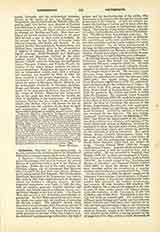

Legrand, Louis, French theologian and noted doctor of the Sorbonne, b. in Burgundy at Lusigny-sur-Ouche, June 12, 1711, d. at Issy (Paris), July 21, 1780. After studying philosophy and theology at St. Sulpice, Paris, he taught philosophy at Clermont, 1733-1736, resumed his studies at Paris, where he entered the Society of St. Sulpice in 1739 and obtained the licentiate in 1740, professed theology at Cambrai, 1740-1743, was superior of the seminary of Autun, 1743-1745, and having been recalled to Paris received the doctorate in theology from the Sorbonne in 1746. Henceforth he remained at the seminary of St. Sulpice in various employments. Appointed director of studies in 1767 he exercised in this capacity a great influence over the brightest young ecclesiastics of France, who were preparing to take their degrees at the Sorbonne. As a doctor of the Sorbonne he was called upon to take a prominent part in framing the decisions and censures of the theological faculty; in that time of intense opposition to Christian dogma no question of importance was decided by the Sorbonne, it is said, without consulting M. Legrand. It was he who wrote the condemnation of Jean-Jacques Rousseau’s “Emile”, which has been accounted a remarkable analysis and refutation of that celebrated work, “learned, exact, well thought out, deep, and singularly clear” (reprinted in Migne’s “Theologise Cursus Completus”, II, col. 1111-1248). Unfortunately, Legrand’s condemnation is forgotten or little read, while the genius of Rousseau has made “Emile” immortal. Legrand also drafted the censures of Marmontel’s “Belisaire” and Pere Berruyer’s “Histoire du Peuple de Dieu”, which, like the censure of “Emile”, were regarded by divines as model expositions of theological knowledge and clear thinking. He helped to avert a censure from Buffon’s “Epoques de la Nature“, in consideration of the author’s retraction. Legrand’s moderation and kindliness gained the esteem and good will of both Buffon and Marmontel. Nearly all the writings of Legrand, most of which, however, are his only in part, have had the honor of being selected by Migne in his “Theologise Cursus Completus”. The most important are: “Praelectiones Theologicae de Deo ac divinis attributis”, a work by La Fosse based on Tournely’s treatise, reedited by Legrand, who added about 400 pages of additional matter. It is still considered a very solid and valuable treatise; reprinted in Mine, VII. “Tractatus de Incarnatione Verbi Divini’ (in Migne, IX), also based on Tournely; a work of high value. Parts of his “Tractatus de Ecclesia” have been reproduced by Migne in his “Scripturae Sacrae Cursus Completus”, IV. Legrand left a posthumous treatise, “De Existentia Dei” (Paris, 1812), which, though unfinished, is considered “equally remarkable for the depth of its doctrine and the clearness of its arguments”.
JOHN F. FENLON

